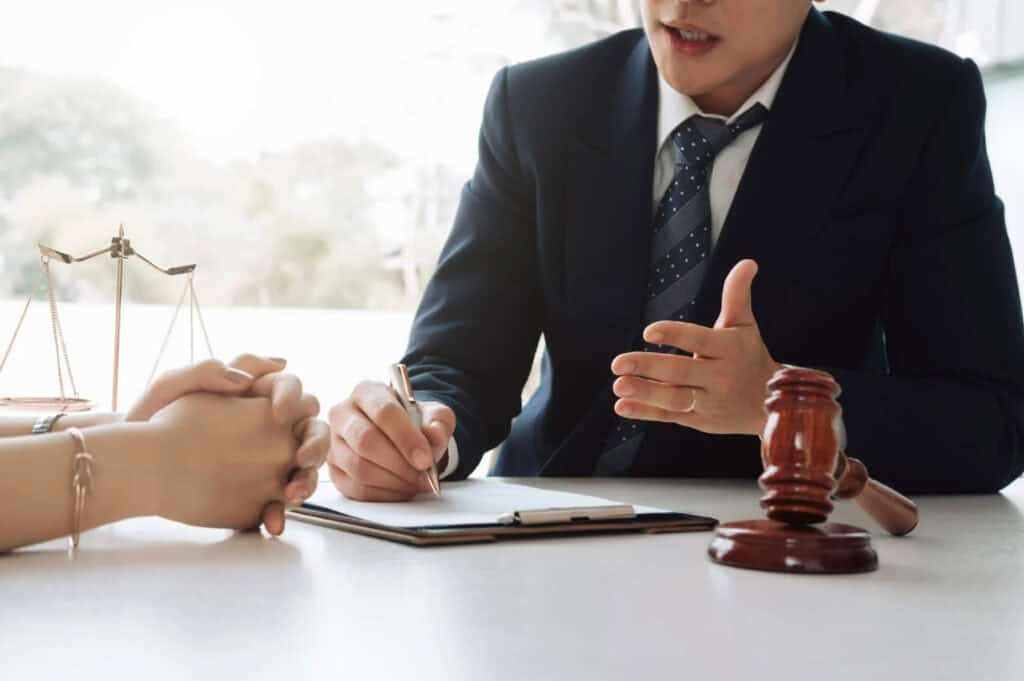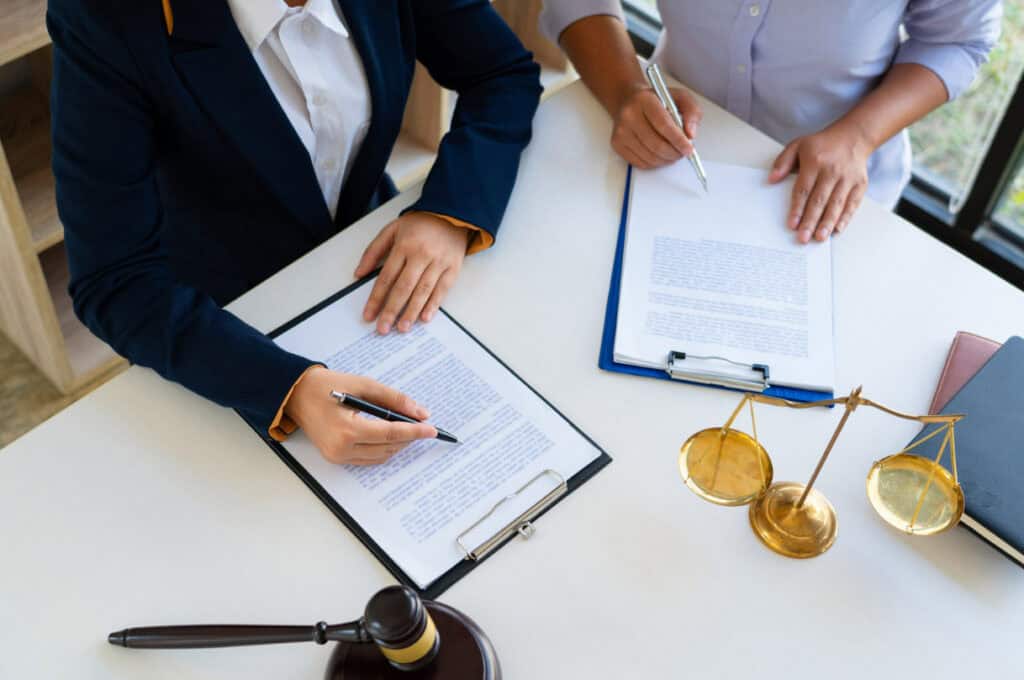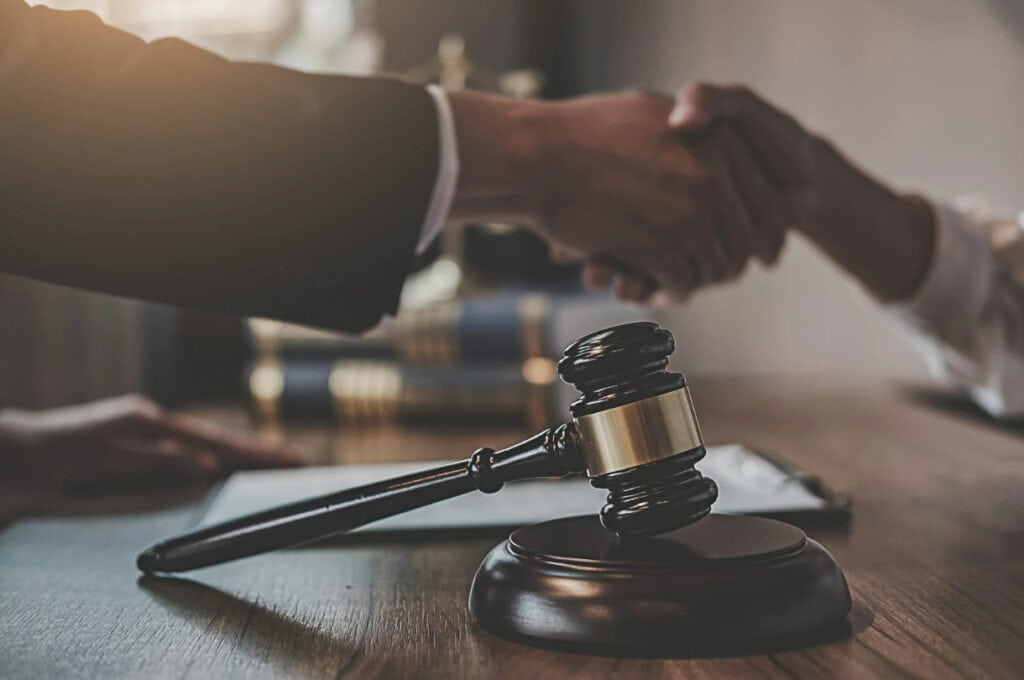When you’re searching for a physician, you look for one specializing in your specific healthcare need. You aren’t going to see a podiatrist for a broken arm. You probably need a surgeon who specializes in broken bones and not one who focuses on feet.
Table of Contents
Well, the same is true for attorneys, as not all lawyers specialize in the same field. Some focus on criminal law and others on civil cases. Knowing how an injury attorney differs from a trial lawyer can make it easier to know which one is best suited for your case.

What Duties Does a Criminal Lawyer Perform
Criminal attorneys are often trial lawyers, though they’re not the only legal representatives trying cases in court.
The primary duty of a trial lawyer is to build a strong defense for their client, and this typically includes, but is not always limited to, the following:
Meeting with the Client
Trial lawyers typically have frequent meetings with their clients, beyond the initial consultation. The attorney needs to go over every aspect of the client’s account of the event.
These meetings can take place in the attorney’s office, at the jail, or over the phone. However, the initial meeting is generally held in person.

Investigating and Collecting Evidence
Your trial lawyer isn’t going to rely solely on case law to mount their client’s defense. Most trial lawyers have access to resources like experts and investigators who can collect evidence to help support your defense.
A trial lawyer will also review any evidence gathered by the police, which can include witness statements, surveillance footage, and other types of evidence.
Negotiate a Plea
Negotiating a plea with prosecutors is standard practice for trial lawyers, but only with their client’s assent. In other words, a lawyer can only work out a plea agreement with the prosecutor with your okay. Your attorney may be able to get your charges dropped or even dismissed during negotiations.
If the prosecutor is willing to offer a deal, your lawyer will discuss the pros and cons, including what can happen at trial.
Putting on a Defense
Sometimes you can’t reach a plea agreement with the prosecution, and this means your case is heading to trial. Your trial lawyer will mount a defense before a judge and jury.
Once both sides have rested, it’s time to wait for the court’s decision. If your defense isn’t successful, meaning you’re found guilty, a trial lawyer can file an appeal.
When Should You Call a Trial Lawyer
Trial lawyers typically handle everything from misdemeanor and felony criminal charges to federal ones. If you’ve been charged with a crime, even a DUI, it’s probably best to contact a trial lawyer.
However, trial lawyers tend to specialize in a specific aspect of criminal law. You may not want a misdemeanor trial lawyer if you’re facing criminal charges. The law differs and you want to choose a trial lawyer that understands all legal nuances.
You should also plan on calling a trial lawyer if:
- You’re identified as a “person of interest” in an ongoing criminal investigation
- You’re being frequently questioned by the police about a crime
- You’re arrested or detained on suspicion of upcoming criminal charges
As we noted earlier, if you’ve been charged with a crime it’s time to schedule a consultation with a trial lawyer.
What to Expect From an Attorney
Attorneys typically handle civil cases like vehicle and product liability accidents. Basically, any type of accident caused by someone else’s negligence can fall into an attorney’s field of specialty. However, attorneys can specialize in types of civil cases.
If you’re injured in a vehicle collision, your best option may not be an attorney specializing in workplace accident claims. So, after choosing the right type of attorney, what should you expect?
Initial Client Meeting
Before an attorney takes your claim, you’ll have an initial meeting, which is when the attorney reviews your claim to see if it has merit. You’ll also discuss the payment structure. While trial lawyers are limited to accepting either upfront or hourly rates, attorneys practicing personal injury law have another option.
They can charge their clients contingency fees, which is an agreement between the attorney and client guarantees a percentage of your settlement is paid to the attorney. So that way, you don’t need to worry about coming up with attorney fees for most personal injury claims.
Investigate and Collect Evidence
Your attorney will review the evidence in your claim, including going over your accident report, collecting evidence, and even recreating the accident scene. Your attorney may even request additional information from the at-fault party’s insurance company.
Part of gathering evidence also includes calculating your damages. These can be both economic and non-economic. You’ll need to submit a list of your damages to the insurance company.
Negotiating with the Insurance Company
Negotiations are often a part of both criminal and civil cases. Expect, you’re not negotiating with the prosecutor. Instead, you’re discussing your claim with the insurance adjuster.
Your attorney is a skilled negotiator and familiar with tactics insurance companies can try to reduce a claim’s value. Don’t be surprised if your claim goes through a few rounds of negotiations before reaching an agreement.

Representing You in Court
When you can’t reach an agreement, your attorney will file a lawsuit in civil court, which is different than criminal court. You’re not seeking jail time for the at-fault party. You’re only asking for compensation for your damages.
The court will probably order another round of negotiations—if this doesn’t work, your claim is heard in civil court and decided by a judge or jury.
Injury Attorney vs Criminal Lawyer – Which Should You Contact
Trial lawyers and attorneys perform the same basic duties for their clients, but the primary distinction lies in the type of law they practice.
If you’re being charged with a crime, contact a trial lawyer. If you’re seeking damages in a personal injury claim, an injury attorney can help. Understanding who to contact can significantly ease the process of resolving your legal case.
Having the right kind of legal expert on your side ensures that you receive the appropriate representation and increases your chances of a favorable outcome. By choosing the right professional, you can navigate the legal system with confidence and clarity.



